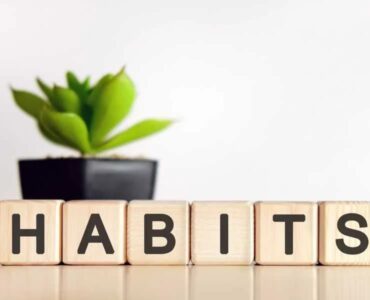If your favorite pair of jeans doesn’t fit, the scale seems to be stuck on some scary value, or your weight is dropping only to rise again, chances are you’re making one of these 10 weight loss mistakes.
- Relying on strict diets.
Determined to lose 10 pounds quickly, you go on a crash diet. Perhaps your plan involves nothing more than grapefruit or cabbage soup every day. You reduce your daily calories to less than 1,000, and sure enough, the pounds melt away. But when you eat so few calories, you cause your metabolism to slow down. Once the diet ends, your body burns calories slower, and you usually regain weight very quickly or gain even more. - Skipping breakfast
Skipping breakfast seems like an easy way to cut calories, but it can cause you to feel hungry for the rest of the day. This can lead to unplanned snacking at work and eating an overly large portion at lunch, leading to a dramatic increase in calories. But breakfasts high in protein and fiber can curb feelings of hunger throughout the day. In fact, studies show that people who eat breakfast every morning are more likely to maintain a healthy weight. - losing track of your snack count
Maybe you count calories at every meal, but what about all those snacks in between? The bag of pretzels on your table, the little piece of cake at a party, the bite of your son’s ice cream cone. All that meaningless chewing adds up and can sabotage a well-planned diet. If you’re serious about counting calories, you can use your smartphone or notebook to keep track of each snack. - No snacking at all.
While mindless snacking can increase your waistline, thoughtful snacking can have just the opposite effect. People who eat several small meals and snacks a day are more likely to control their hunger and lose weight. Snacking helps keep your metabolism high, especially if the snacks are rich in protein. Eating a few nuts is a good high-protein choice, and studies show that people who snack on nuts tend to be slimmer than those who don’t. - Stick to lean foods.
Lean foods can play an important role in your diet. Just remember that lean is not the same as low-fat, and it’s not a license to eat second and third servings. If you feed yourself a plate of nonfat cake, you will end up eating more calories than if you ate a smaller piece of regular cake. The best way to know how much fat, sugar, and calories you’re getting is to check the food label. - Sipping too many calories
When counting calories, many of us tend to overlook what’s in our drinks. This is a big mistake when you consider that some fancy coffees and alcoholic beverages contain over 500 calories. Even the calories contained in fruit juice and soda can add up quickly. - Drinking too little water.
This is one of the easiest dieting mistakes to correct. Water is essential for burning calories. If you allow yourself to become dehydrated, your metabolism slows down, which means slower weight loss. So try adding a glass of water to every meal and snack. - Giving up dairy products.
Fatty milk, cheese and ice cream are taboo for many people on a diet, but giving up dairy products can be counterproductive. Some studies show that the body burns more fat when it gets enough calcium and produces more fat when it’s lacking. - Drive too often.
After a busy day, it’s convenient to get by car, and you can always order a salad or other healthier option. But once you’re there, can you resist a milkshake or other treat? And if you once allow yourself the ease of fast food, it can become a habit. According to one long-term study, people who ate fast food more than twice a week gained 10 pounds more than those who ate it less than once a week. - Setting unrealistic goals
By telling yourself that you will lose 10 pounds in the first week, you are probably setting yourself up for failure. If you know you can’t do it, you may never start your diet at all. If you sit on a diet and lose 2-3 pounds in a week instead of celebrating, you may feel disappointed that you didn’t reach your goal. A realistic goal is vital to a successful diet. If you’re not sure what your goal should be, talk to a dietitian.



